Gaokao cheaters face dire consequences
Updated: 2016-06-07 07:28
By CHENG YINGQI(China Daily)
|
||||||||
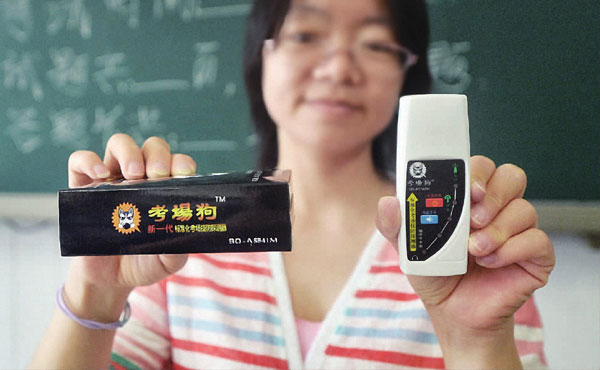 |
|
An exam supervisor at Beijing Dongzhimen High School shows a monitoring device that can detect invisible earpieces used for cheating. The school is one of this year's gaokao sites.[LIU CHANG/CHINA DAILY] |
After passing through multiple checkpoints, including facial recognition, fingerprint verification and a metal detector, students will finally be granted access, not to a bank vault, but to a radio-shielded room where they will take the national college entrance exam.
Chinese authorities are imposing strict measures to prevent cheating in this year's test-known as the gaokao-and those who cheat could get three to seven years in prison.
The anti-cheating measures also include the printing and transportation of test papers and the selection of exam supervisors.
Local education bureaus are collaborating with public security bureaus to introduce advanced technology that can identify cheaters.
For example, the Inner Mongolia autonomous region will use finger vein recognition-a new-generation biometric authentication technique that goes beyond fingerprints-to verify the identity of exam takers.
In Luoyang, Henan province, local authorities will use drones hovering 500 meters overhead to intercept any radio signals around the test buildings.
In a number of cities and provinces including Beijing and Guangzhou, all smartwatches that can transmit data will be banned.
Despite the deterrent value of harsh penalties, some cheaters are still willing to take the risk in other national-level exams.
For example, leaks of test documents to be used in this year's civil service exams occurred in Jiangxi and Anhui provinces.
"Under the current talent-selection system in China, exam performance is decisive for one's future. As a result, the general public pins high hopes on the fairness of large national exams such as the gaokao, the national postgraduate entrance examination and the civil service recruitment exams," said commentator Wang Jie of Beijing-based Science and Technology Daily.
Guo Dan, a Beijing mother whose daughter will take the gaokao in two years, said, "There is a benefit chain behind leaking test papers and organized cheating. So adopting stricter exam regulations will bring more fairness.
"That's why I support the new policies."
This year's gaokao will take place on Tuesday and Wednesday. About 9.4 million people are expected to take the exam.
- Hugs, anxious parents, high-tech security: China's college entrance exam starts
- Xi eyes key exchanges with Obama
- Big cities show more tolerance toward LGBT cultures
- 1,000-year-old agricultural practice, China's solution to sustainable farming
- Volunteers turn tide for stranded sailors
- Gaokao cheaters face dire consequences
- Suspected IS terrorists arrested in Germany
- Japanese boy abandoned by parents in Hokkaido forest found alive
- China to build Africa's biggest university library
- 'Kill list' found in UCLA campus shooter's residence: Police
- Swiss declare Alps tamed as Gotthard rail tunnel opens
- China urges Japan to properly settle Chinese forced laborers issue

 Popular foods to break fast during holy month of Ramadan
Popular foods to break fast during holy month of Ramadan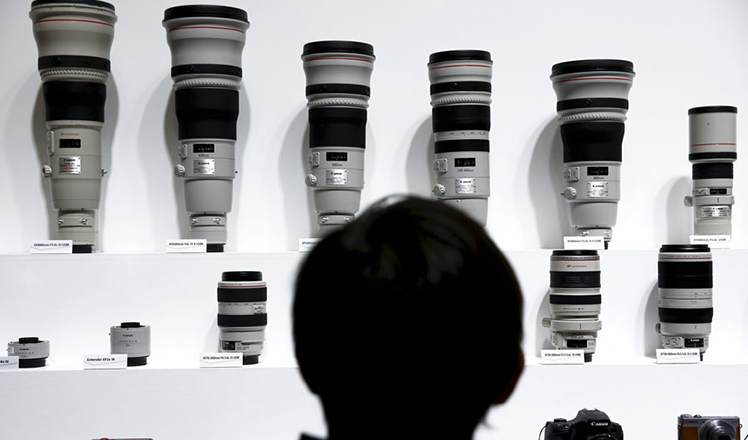
 Top 10 biggest brands in Asia listed in media report
Top 10 biggest brands in Asia listed in media report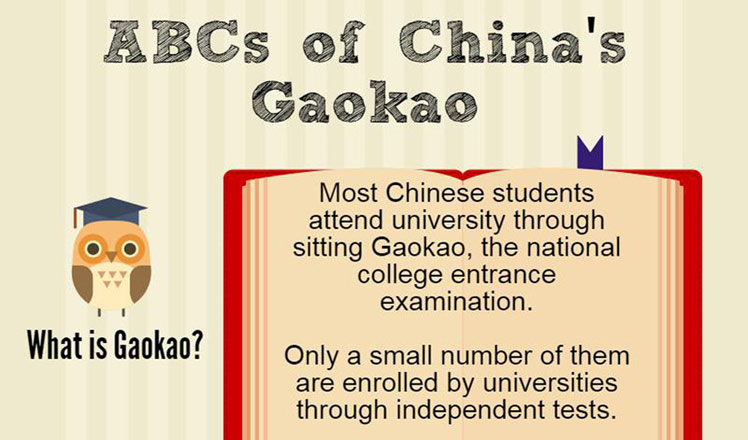
 Things you need to know about China's gaokao
Things you need to know about China's gaokao
 The world's most striking images: May 30 - June 5
The world's most striking images: May 30 - June 5
 Djokovic conquers Roland Garros to join tennis pantheon
Djokovic conquers Roland Garros to join tennis pantheon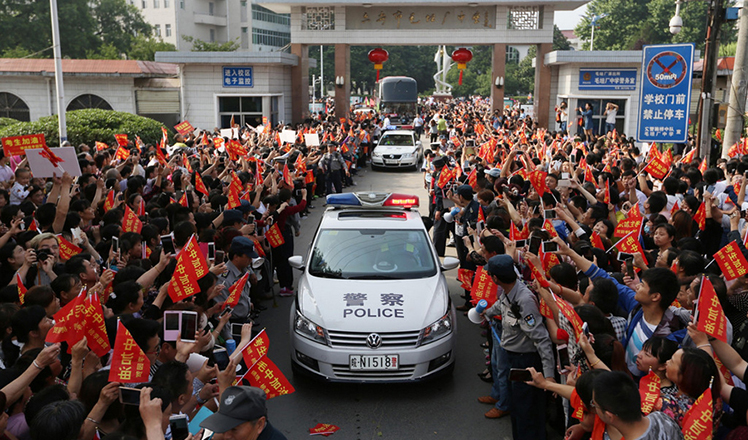
 Students receive gaokao cheers in east China
Students receive gaokao cheers in east China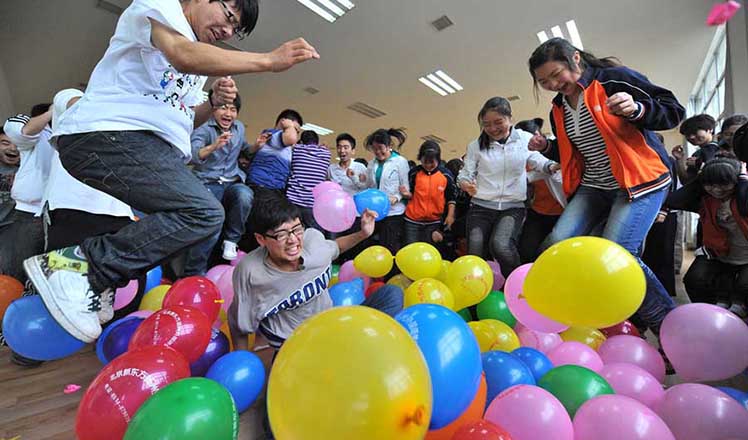
 Students use creative ways to relieve gaokao stress
Students use creative ways to relieve gaokao stress
 Frederik the Great: Is it a horse or a stunning statue?
Frederik the Great: Is it a horse or a stunning statue?
Most Viewed
Editor's Picks

|

|

|

|

|

|
Today's Top News
Abe's blame game reveals his policies failing to get results
Ending wildlife trafficking must be policy priority in Asia
Effects of supply-side reform take time to be seen
Chinese State Councilor Yang Jiechi to meet Kerry
Chinese stocks surge on back of MSCI rumors
Liang avoids jail in shooting death
China's finance minister addresses ratings downgrade
Duke alumni visit Chinese Embassy
US Weekly

|

|







